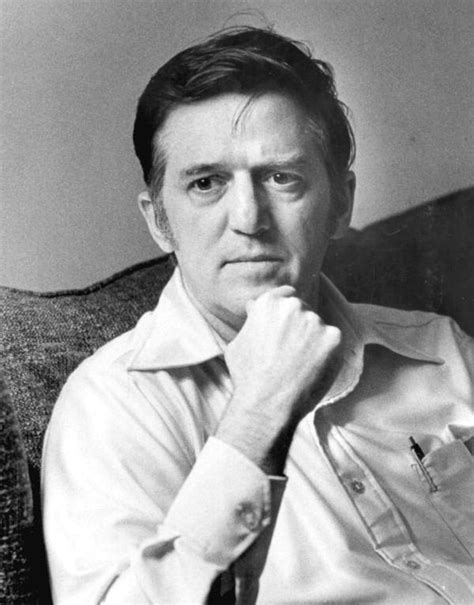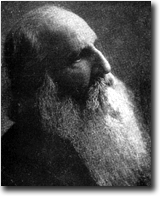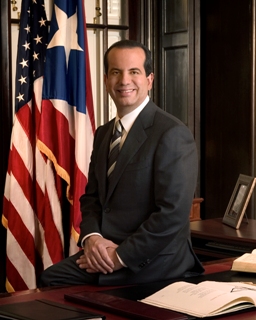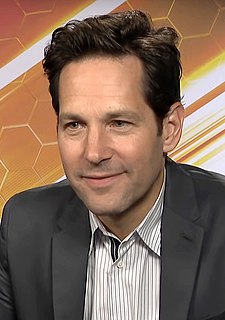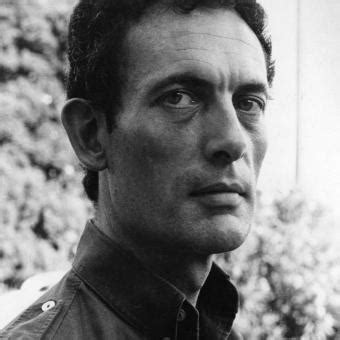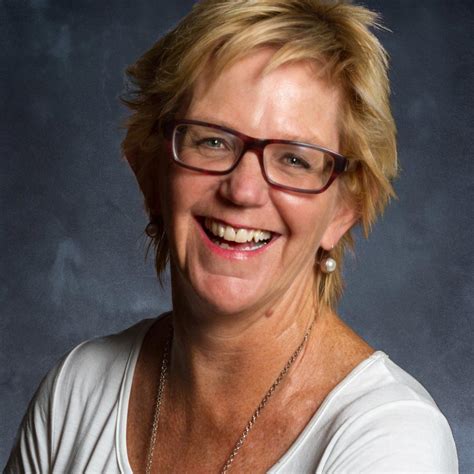A Quote by Scott Derrickson
I wasn't born into a religious home, but I was just not a materialist. I didn't believe the material world was all there was or, even, most of what there was. I always felt that I was part of a reality of which the majority was unseen.
Related Quotes
I have friends who are scientists, strict materialists, who don't think science and religion are compatible, but I just think most of us - unless you're a strict atheist materialist, which there aren't many of - most of us believe in something outside the material world. And if you do believe that, I don't know how you're not obsessed with it.
I've never felt Truth was Beauty. Never. I've always felt that people can't take too much reality. I like being in Ingmar Bergman's world. Or in Louis Armstrong's world. Or in the world of the New York Knicks. Because it's not this world. You spend your whole life searching for a way out. You just get an overdose of reality, you know, and it's a terrible thing. I'm always fighting against reality.
Home. One place is just like another, really. Maybe not. But truth is it's all just rock and dirt and people are roughly the same. I was born up there but I'm no stranger here. Have always felt at home everywhere, even in Virginia, where they hate me. Everywhere you go there's nothing but the same rock and dirt and houses and people and deer and birds. They give it all names, but I'm at home everywhere. Odd thing: unpatriotic. I was at home in England. I would be at home in the desert. In Afghanistan or far Typee. All mine, it all belongs to me. My world.
It is alone that part of the external universe which we call material which acts on man through his senses - that part of which we ordinarily feel our knowledge to be the surest; but in reality, strangely enough, as will soon appear, this is one of the aspects of the external world, of which we can know nothing.
Even when we were under the Spanish flag, we had a movement that just wanted assimilation into Spain, a movement of autonomy - which has been the majority always - and a movement for separation. In that sense, Puerto Rico's political reality is very different from any place I know in the whole world.
In its main features the Declaration of Independence is a great spiritual document. It is a declaration not of material but of spiritual conceptions. Equality, liberty, popular sovereignty, the rights of man - these are not elements which we can see and touch. They are ideals. They have their source and their roots in the religious convictions. They belong to the unseen world. Unless the faith of the American people in these religious convictions is to endure, the principles of our Declaration will perish. We can not continue to enjoy the result if we neglect and abandon the cause.
Even if all life on our planet is destroyed, there must be other life somewhere which we know nothing of. It is impossible that ours is the only world; there must be world after world
unseen by us, in some region or dimension that we simply do not perceive. Even though I can't prove that, even though it isn't logical - I believe it.
More than just a moral issue, hope is a spiritual and even religious choice. Hope is not a feeling; it is a decision. And the decision for hope is based on what you believe at the deepest levels - what your most basic convictions are about the world and what the future holds - all based on your faith. You choose hope, not as a naive wish, but as a choice, with your eyes wide open to the reality of the world - just like the cynics who have not made the decision for hope.
Majorities are of two sorts: (1) communal majority and (2) political majority. A political majority is changeable in its class composition. A political majority grows. A communal majority is born. The admission to a political majority is open. The door to a communal majority is closed. The politics of political majority are free to all to make and unmake. The politics of communal majority are made by its own members born in it.
What I see here, what I feel here is that people in your world believe spirituality isn't distant. It's close and real. Religion seems born in the home, stays in the home. I mean, the services are even held in the home. And there's not one person in charge, one speaker set above the others. It's farmers and carpenters, and well, just average folk speaking spontaneously about the message they find in the Bible. [...] A message from the heart to the heart.
... many of the things which we deplore, the prevalence of tuberculosis, the mounting record of crime in certain sections of the country, are not due just to lack of education and to physical differences, but are due in great part to the basic fact of segregation which we have set up in this country and which warps and twists the lives not only of our Negro population, but sometimes of foreign born or even of religious groups.


